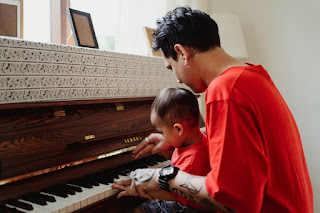The Importance of Learning Piano at a Young Age
Importance and Benefits of Learning Piano from an Early Age
Importance and Benefits of Learning Piano from an Early Age. Learning to play the piano from a young age offers a multitude of benefits that extend far beyond simply mastering a musical instrument. The cognitive, emotional, and social advantages of early piano education are well-documented, making it a valuable pursuit for children worldwide. Regular piano practice requires memorization of musical pieces, which exercises memory recall and strengthens cognitive abilities. Moreover, the complex interplay between reading music notation and translating it into physical actions fosters improved concentration, problem-solving, and multitasking skills.
Playing the piano serves as a powerful outlet for emotional expression, allowing children to convey their feelings through music. The act of playing can reduce stress levels and promote relaxation, providing a therapeutic escape from daily pressures and challenges. Mastering new piano pieces and overcoming challenges instills a sense of accomplishment and boosts self-confidence in young learners. Additionally, the discipline required to practice regularly and strive for improvement fosters valuable life skills that extend beyond the realm of music. The focus and concentration required during piano practice translate into improved academic performance across various subjects. Children develop the ability to pay attention to detail, stay organized, and persevere through challenges, ultimately enhancing their learning potential.




Comments
Post a Comment